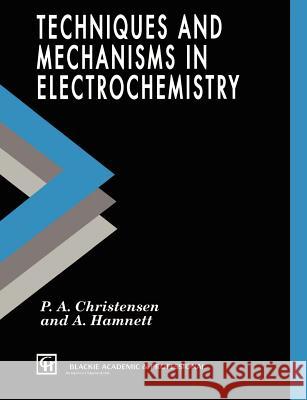Techniques and Mechanisms in Electrochemistry » książka
Techniques and Mechanisms in Electrochemistry
ISBN-13: 9780751401295 / Angielski / Miękka / 1993 / 384 str.
It is hard to overstate the importance of electrochemistry in the modern world: the ramifications of the subject extend into areas as diverse as batteries, fuel cells, effluent remediation and re-cycling, clean technology, elect- synthesis of organic and inorganic compounds, conversion and storage of solar energy, semiconductor processing, material corrosion, biological electron transfer processes and a wide range of highly specific analytical techniques. The impact of electrochemistry on the lives of all of us has increased immeas- ably, even in recent years, but this increase has not been reflected in the level or content of courses taught at universities, many of which portray the subject as a collection of arcane recipes and poorly understood formulae of marginal importance to the mainstream of chemistry. This approach reached its nadir with the recent extraordinary furore surrounding the purported discovery of cold fusion, where two electrochemists claimed to have shown that the fusion of deuterium nuclei could be effected under ambient conditions by the electrochemically induced intercalation of deuterium atoms into palladium. Whatever the truth behind such claims, their discussion revealed a lamentable lack of knowledge of modern elect- chemistry, not only among science writers for the popular press, but among many professional chemists and physicists whose acquaintance with the subject seems, for the most part, to have stopped somewhere about the time of Nernst. In a year in which Professor R.











